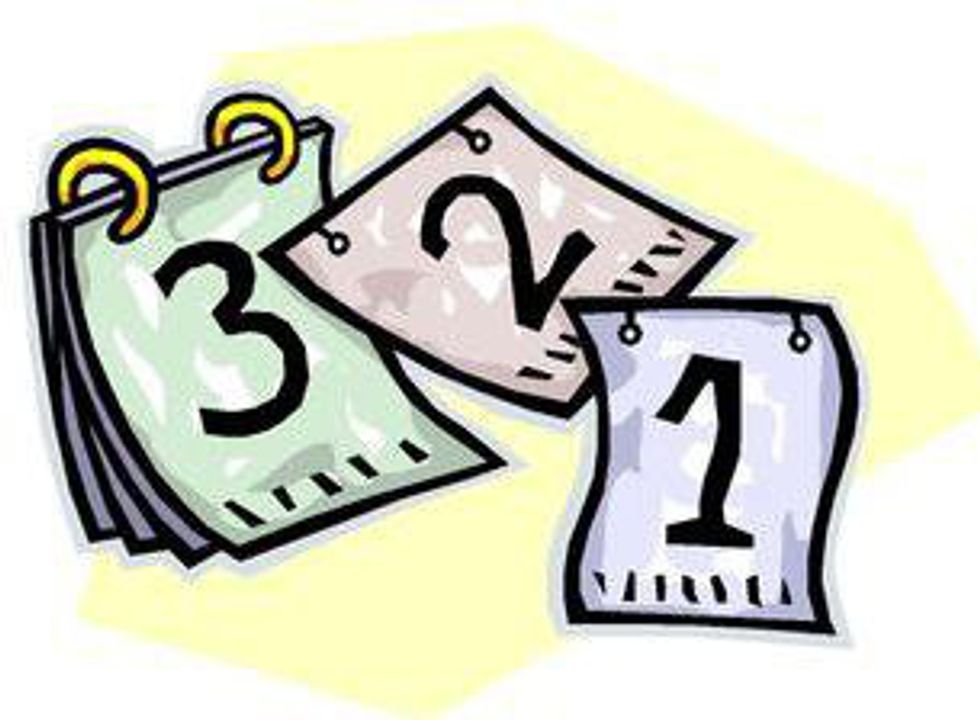From the moment our existence begins, we come to know rhythm. And for the first nine months of our life, the only thing that we have any interaction with is just that – the heartbeat of our mother. It ticks like a clock and it never stops ticking.
If the average heart beats 80 times per minute and about 4,800 times per hour; that adds up to a whopping 115,200 times per day… and, assuming our heartbeat is approximately consistent (slower during the night and faster during the day), it all adds up to around 31,680,000 times per nine months.
That's insane.
Every part of our early development is accompanied by rhythm and constancy as “the heartbeat of [our] mother is imprinted into the brain… it is not unbelievable that the newborn infant is calmed and seems to feel some emotions when s/he hears the heartbeat of the mother that this fetus heard in the womb."
It is furthermore not unbelievable that we are so rhythm-oriented throughout the rest of our lives. In fact, it's something you should recognize if you think about it.
If the music of a new band is supported by a good, consistent drummer, we notice and we enjoy it; and, in contrast, if it isn’t… we don’t buy the album.
In our day to day – we press the gas and the breaks in our cars and we drive from point "A" to point "B," and we don't even think about it. It may not be to the beat of any music, but it is still part of the rhythm of our lives that we have grown to know so intimately, and it is all done without thought.
We are so drawn to rhythm – constancy and predictability – that any broken rhythm shocks us; and every clean rhythm soothes us.
On a larger scale, our planet revolves around rhythm. The sun rises every day and each ecosystem reacts in predictable ways – flowers bud and the tide comes in and goes out – and, as the seasons change, certain animals migrate north and south and each of their innate instincts prompt them to do so. Everything happens in cycles.
In the universe, our earth rotates on its axis about once every 23 hours, 56 minutes and 4 seconds with respect to the stars; and each of the planets in our solar system rotate around the sun in predictable and uniform patterns.
The space which we occupy, both micro and macro, is cyclical and rhythm oriented, and we opperate, thusly, in the same way.
Or do we?
We seem to have been built inside of a world of rhythm and we seem to be drawn to it... but do we live lives that take advantage of that?
The answer is no.
We, as conscious, non-compulsory beings are the only organisms in the universe that ignore and neglect our cyclical-orientation. The universe has a rhythm to it that we were designed to enter into; but we, rather, work against it daily.
Night, for example – the time where everything sleeps and regenerates and recovers – is designed for a purpose which we ignore by overworking ourselves “burning the midnight candle,” and, thus, habitually go without rest. If our brains were designed to operate autonomously, automatically and intelligently, we ignore that design by shying from habit and living as impulsive, recklessly variable beings. Sometimes we skip breakfast because we woke up late and are in a rush; sometimes we stay up late to finish the season of Grey’s Anatomy that was just released on Netflix and then drink gallons of caffeine and sugar to compensate for losing sleep. Our lives are so busy and unpredictable that rhythm and cycles seem to be really more of an inconvenience than a provision.
The secret to living well, here, is to enter into healthy habits.
There was a morning last semester when I woke up, brewed coffee, showered, clothed myself, drank the coffee, and then rushed off to class without having to exert a moment of thought. I was so deep in habit that I was able to live my routine while existing, consciously, elsewhere. That same morning, I made a decision about studying abroad, about my plans later that day, and even processed some things that had happened the previous week. It was, needless to say, a good morning.
The beauty of habit – especially if the habit is healthy – is that it allows our bodies to do the mundane things without conscious thought, thus making space for our minds to work separately and efficiently. It also realigns our lifestyles with rhythms that are good to maintain.
Habit and routine – as boring as those words may sound – prevent the constant from interfering with the unpredictable, and keeps us healthy all the while.
If you are malnourished, without sleep, and filled with anxiety, it will be difficult to handle any sort of surprise to your body well. If you get in an argument, you’ll likely have much less patience, you probably won’t be able to think rationally and compassionately, and your out-of-whack emotions will likely affect your actions more than they should.
We weren't designed to work that way. Not well, at least.
Habit keeps us in tune with the rhythm that we were designed to embrace, and make space in our experience of life for the important things to be handled consciously, and the unimportant to be handled subconsciously.
Give it a shot!























